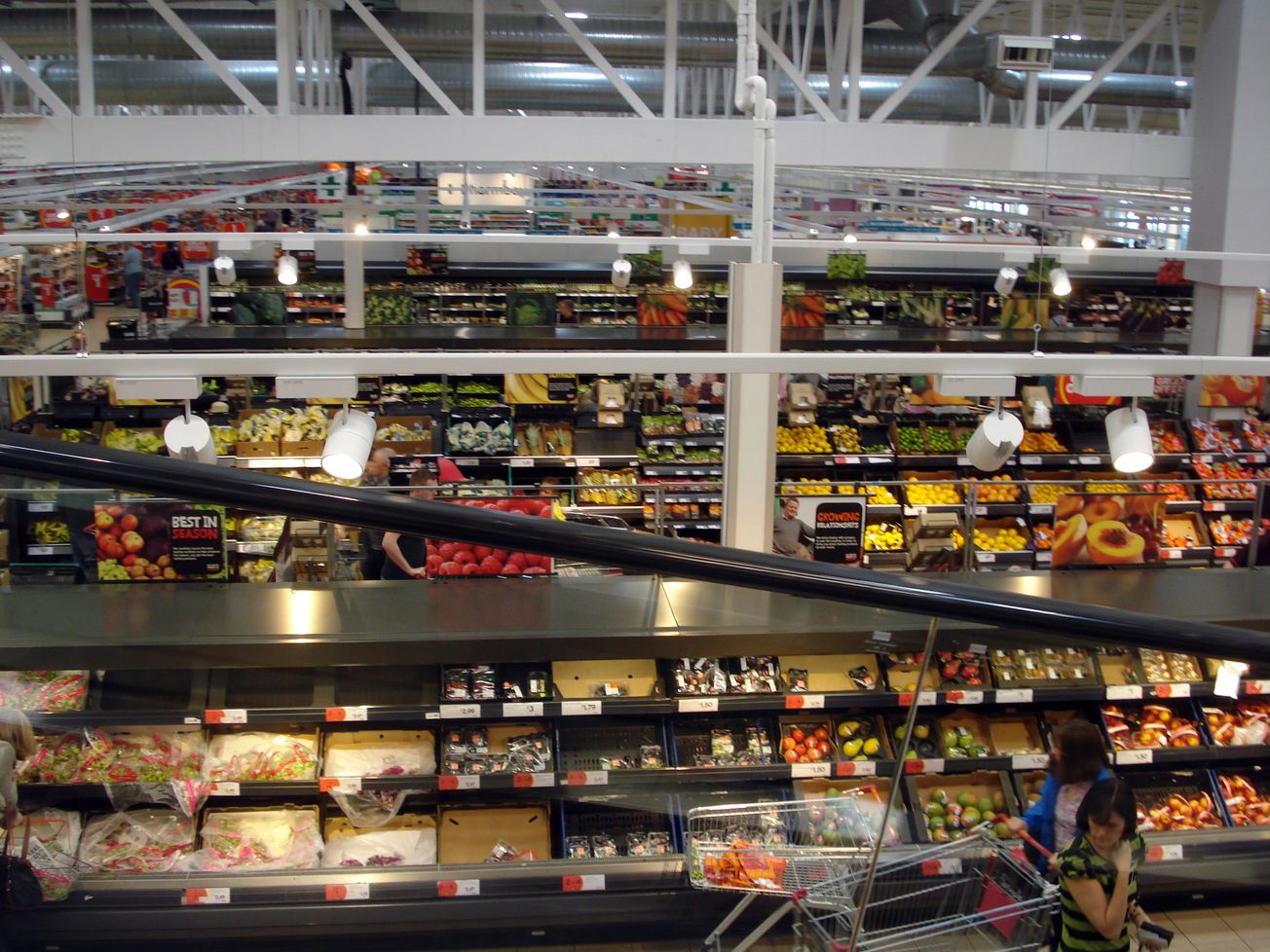Epigram is an independent and neutral newspaper, aiming to publish opinions from across the student body. To respond with an opposing opinion, please contact commentteam.epigram@gmail.com or join our Facebook writers' group.
By Elisha Mans, First Year Politics and International Relations
With Sainsbury’s named by Greenpeace UK as the worst British supermarket for plastic reduction, should Bristol students be making more sustainable shopping choices?
I doubt that there is a single student in the University of Bristol who hasn’t popped into Sainsbury's at some point – be that to do their weekly food shop, grab a meal deal, or stock up on study snacks. Sainsbury’s seems to all but monopolize the University market with their Queens Road and Whiteladies stores.
However, Greenpeace UK, an environmental NGO, has recently studied the top ten UK supermarkets in terms of their progression in plastic reduction, and it is Sainsbury’s who came out worst. In fact, they had pledged to reduce just 77 tonnes of plastic in the first three months of this year, that comes in comparison with ASDA’s huge 6,500 tonnes.
Perhaps it is no surprise that Sainsbury’s seems to be falling behind. It only takes a visit to the store to notice that, particularly in terms of fresh produce, items come put together and packaged. For example, a pack of three plastic-wrapped peppers is cheaper than buying three loose ones.
So, what should we do to address this when, near the University, it seems like the only supermarkets available to us are Sainsbury’s, Sainsbury’s, and more Sainsbury’s?
We only need to take Greta Thunberg, the Swedish schoolgirl who set off the global school strike for climate change by sitting on her own with a protest sign outside the Swedish parliament, to show that small actions can make big changes. As she said, ‘we cannot solve a crisis without treating it as a crisis’.
If we were to act together, we could really prompt a transformation in Sainsbury’s’ plastic policy
We must demonstrate that Sainsbury’s plastic performance is simply not sufficient for the plastic crisis which we find ourselves in. With our oceans and land masses clogging up with plastic, it is time to make some changes. Whilst changing individual shopping habits may seem futile, and perhaps in a way it is, if we were to act together, we could really prompt a transformation in Sainsbury’s’ plastic policy.
Now, I’m not suggesting that the entire student body needs to sit outside Sainsbury’s with a banner, but maybe we can play our part in a small way.
hey there @sainsburys Can you explain why nearly EVERY vegetable or fruit is covered in unrecyclable plastic film or wrap! It is CRAZY & you should be ashamed!! @ExtinctionR @Greenpeace pic.twitter.com/9shULFx0fe
— Matt P-T (@mattpt) April 24, 2019
Shopping more consciously could just mean shopping locally for fruit and veg, rather than doing all of your shop at Sainsbury’s. Cotham Hill Fruit and Veg greengrocers, for example, could be a more sustainable place to buy fresh, unpackaged produce that adds no time or money onto your weekly shop. In that way, you can still buy all the best of Sainsbury’s groceries (no-one can say no to some Sainsbury’s bakery cookies) without encouraging their extreme overuse of plastic packaging.
Retailers respond to pressure and to action. If we want to send a message to Sainsbury’s that they need to do more to fulfil their, thus far, empty promise that they ‘care about our planet’, then we need to act with our feet. We need to stop buying the plastic-wrapped produce which Sainsbury’s seems uninclined to reduce.
Whilst it is well-intentioned that we show our commitment to the planet by rejecting plastic straws, there is a far bigger crisis in our commercial plastic waste. There is a need for change from those who hold the power.
Sainsbury’s, as the UK’s third biggest supermarket chain, has this power but, as Greenpeace UK has pointed out, they are not utilising it for good. It is down to the commercial powers like Sainsbury’s to make changes for our planet, but it doesn’t seem like they will do it unprompted. So, we must force them to change.
Featured image: Flickr/diamond geezerWhat do you think about plastic waste in Bristol's supermarkets? Let Epigram know!
Twitter // Epigram Comment // Facebook









